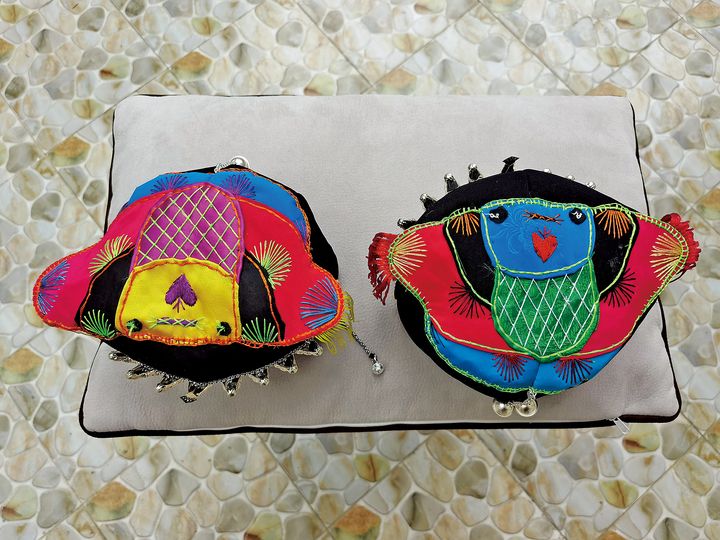Facebook joins debate over whether social media makes us unhappy
Facebook is a symbol of one of the great debates of the 21st century: Is social media a gift to humanity, or is it a curse that drives us further apart and deeper into our own ideological echo chambers?
There is no simple answer to that question, which is why it frequently becomes a cultural obsession as it did this week, when a recent video surfaced of a former Facebook executive decrying the negative effects of social media.
SEE ALSO:Facebook responds to criticism that the network is 'destroying how society works'Now Facebook is joining the conversation with a lengthy blog post about its efforts to understand how the social media platform affects users' well-being. The bottom line is that whether or not social media makes us miserable seems to depend on how we use it, say Facebook's David Ginsberg, director of research, and Moira Burke, a research scientist.
"According to the research, it really comes down to how you use the technology."
"According to the research, it really comes down to how you use the technology," write Ginsberg and Burke. "For example, on social media, you can passively scroll through posts, much like watching TV, or actively interact with friends — messaging and commenting on each other's posts.
Passively consuming social media has been linked to negative effects, whereas active engagement may be capable of boosting well-being, say Ginsberg and Burke. (It's worth noting that more engaged users are likely more valuable to Facebook's advertising business.)
That draws a fascinating line between Facebook and critics who argue that social media can have a poisonous effect on people's self-esteem, their relationships, and their ability to consume and reflect on the news. Facebook's position seems to be that those unpleasant experiences aren't caused directly by its product, but by how people engage with the platform.
That's a much more optimistic view of social media than what Chamath Palihapitiya, the company's former vice president for user growth, shared with an audience at Stanford Graduate School of Business last month.
"The short-term, dopamine-driven feedback loops we've created are destroying how society works," Palihapitiya said, describing the habit-forming nature of online interactions (think the rush of receiving comments, likes, and hearts on your social media posts.)
After these comments became widely publicized this week, he used a Facebook post to clarify that he believes the company is "a force for good in the world."
"Facebook has made tremendous strides in coming to terms with its unforeseen influence and, more so than any of its peers, the team there has taken real steps to course correct," he wrote.
But Palihapitiya is not the only one alarmed by the way social media influences our behavior. Last month, Sean Parker, Facebook's founding president, said the company is "exploiting a vulnerability in human psychology" that primes humans to crave validation.
"Facebook has made tremendous strides in coming to terms with its unforeseen influence."
Ginsberg and Burke don't name Palihapitiya or Parker. They do reference scientific studies that are both flattering and unfavorable to Facebook. The company's own research, in partnership with a Carnegie Mellon University psychologist, found that users who sent or received more messages, comments, and posts to their profile said their feelings of depression and loneliness improved. But another experiment that randomly assigned students the task of reading Facebook for 10 minutes were in a worse mood by the end of the day than those who posted or talked to friends on Facebook. Other research suggests screen time, including social media, takes a toll on teens' health.
Negative effects, say Ginsberg and Burke, might be related to the uncomfortable experience of reading about others and comparing yourself negatively to them. Time spent on social media and on the internet might also reduce in-person socialization, which can lead to feelings of isolation.
Though Facebook has previously commented on its own well-being research, the blog post offers a candid discussion of the negative aspects of social media, along with details about the company's efforts to understand those dynamics.
The post doesn't contain unexpected revelations, but it does include insights about how Facebook views its controversial role in mediating hundreds, if not thousands, of small moments in a person's everyday life.
Ginsberg and Burke write that the company has already made significant changes to News Feed by demoting clickbait and false news, optimizing ranking so posts from close friends are more likely to show up first, and promoting posts that are "personally informative." The blog post also announces the launch of Snooze, a feature people can use to tune out a friend's posts for 30 days without having to permanently unfollow or unfriend them.
Ginsberg and Burke add that Facebook will continue to research well-being and make new efforts to understand "digital distraction." It will also put on a summit next year with academics and industry leaders to "tackle" these complex issues.
While the public might wait for Facebook, and the broader tech and research communities, to solve this riddle, Ginsberg and Burke touch on a sensitive subject: personal responsibility. Their focus on how the effects of social media change depending on a user's style of engagement — mindless scrolling versus active participation — hints at the possibility that users may need to be more aware of (and adapt) their behavior if they want to feel better.
That might be hard, though, for users who count on being able to choose a thumbs-up or heart and move on with their lives.
Featured Video For You
Is social media getting in the way of our happiness?
TopicsFacebookHealthSocial GoodSocial Media
(责任编辑:新闻中心)
- ·50 Places to Eat and Drink Before You Die
- ·HRW urges countries to join Beijing Games diplomatic boycott
- ·Can Facebook's News tab fix the problems News Feed created?
- ·Trump's Twitter account went on an all
- ·Best CPU Deals, AMD vs Intel: Holiday CPU Buying Guide
- ·N. Korea set for nuke test, but no sign of action yet: S. Korean defense chief
- ·Google Pixel 4's face unlock will get more secure but not straight away
- ·Dog takes bite out of the mic during big local news interview
- ·25 Years Later: A Brief Analysis of GPU Processing Efficiency
- ·GoFundMe bans anti
- ·Webb telescope discovers 6 rogue worlds. They didn't form the way you'd expect.
- ·What some buyers will *really* pay for the new iPhone 12 models
- ·[INTERVIEW] 'Inter
- ·Slack problems: Messages not sending, completely down for some users
- ·3D Game Rendering 101
- ·Norton Secure VPN will help secure your connection
- ·Disney+'s 'The Right Stuff' is a space drama with slow liftoff
- ·Working From Home Effectively: Dos and Don'ts
- ·Wordle today: The answer and hints for August 29
- ·N. Korea may conduct 7th nuclear test between Oct. 16 and Nov. 7: spy agency













